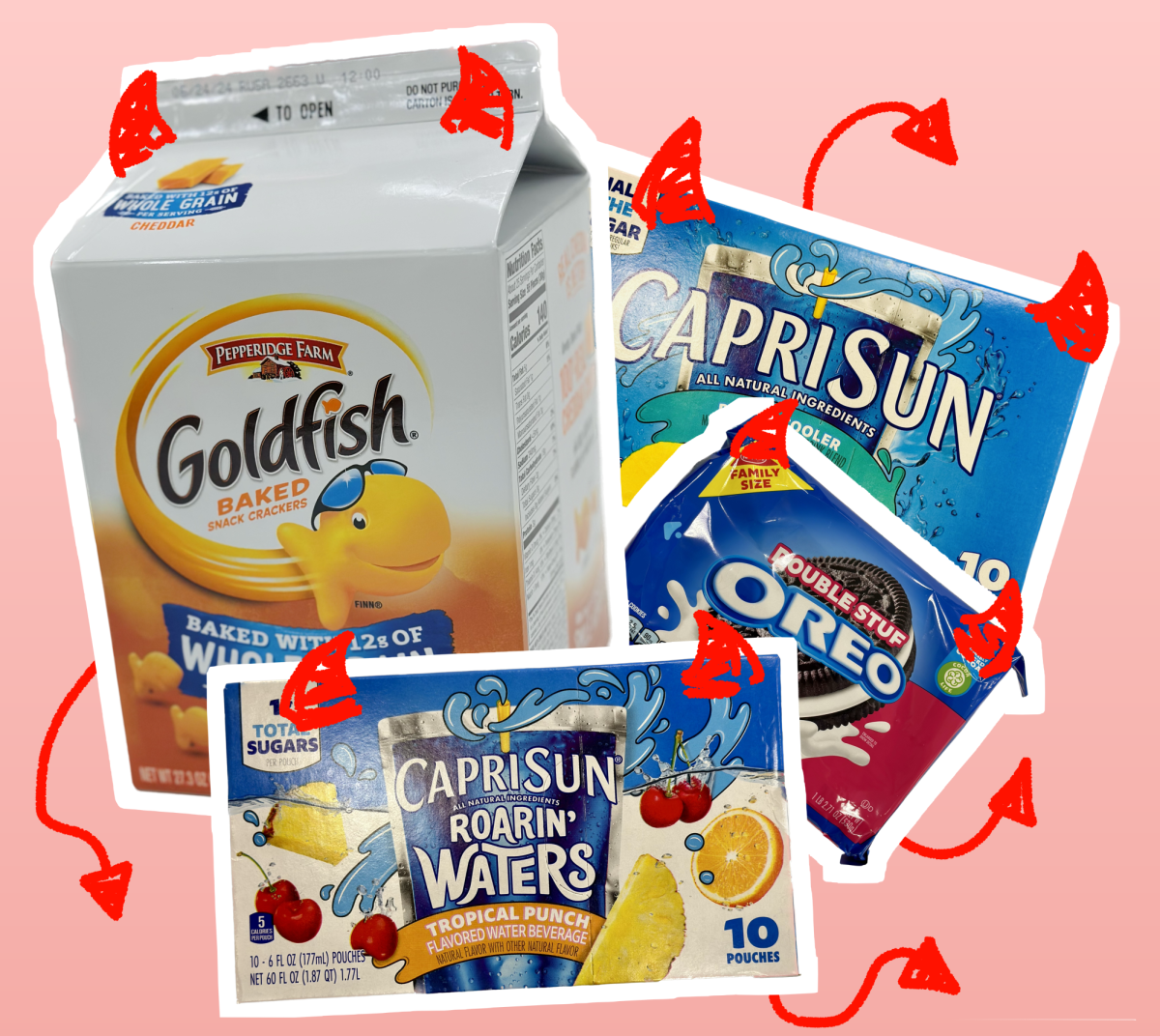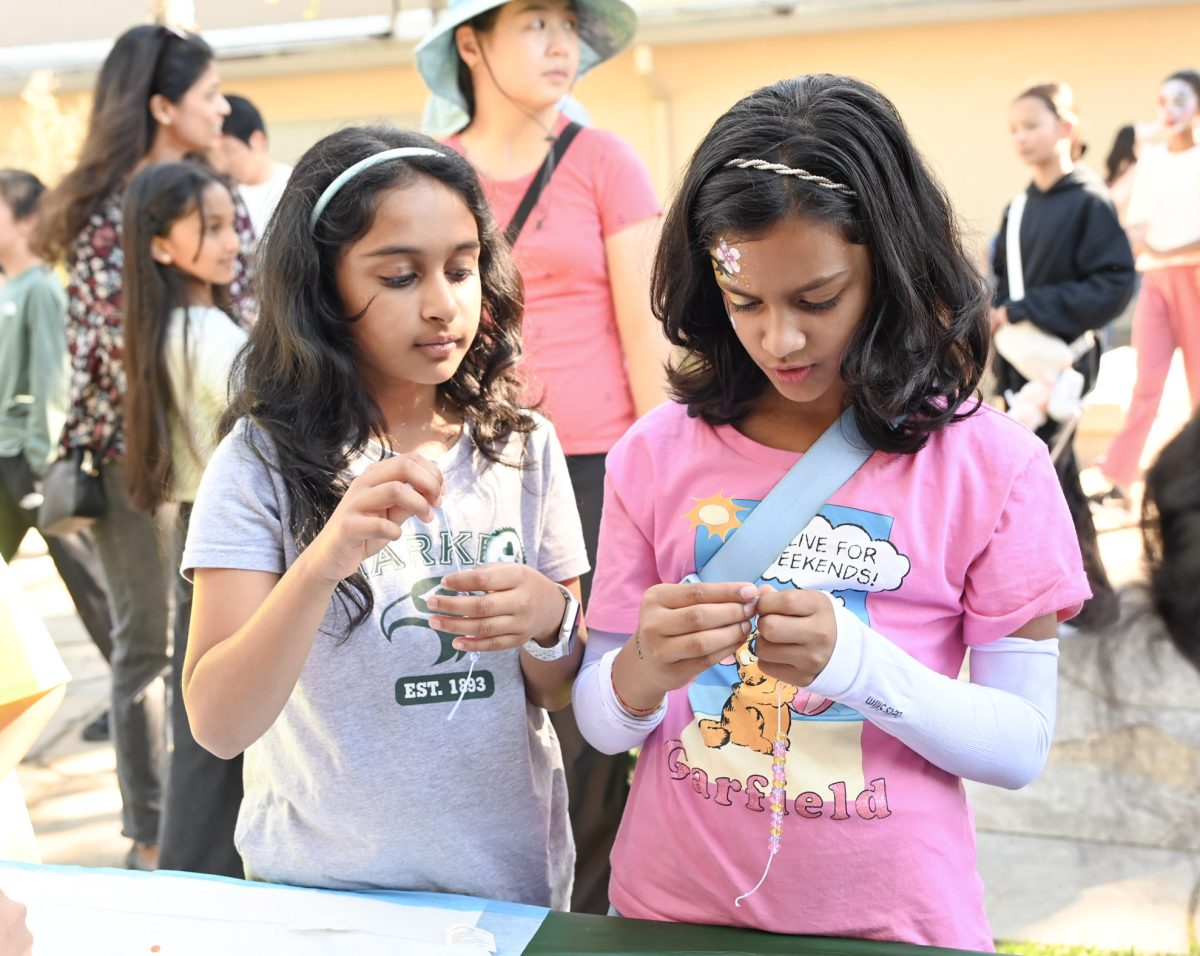In place of goldfish are air-fried croutons, instead of Minute Maid is lemon-lime sparkling water turned still. In a world where “Instagram-worthy” salads often overshadow childhood classics, diet culture has reshaped the snacks that once fueled our youthful spirits.
This shift in focus has transformed the essence of childhood snacks, and not for the better. Diet culture casts a shadow over what used to be joyful moments of indulgence. The result? A new generation of childhood snacks that often falls short in terms of quality and, more importantly, what I like to call the “happiness factor.”
The first and most noticeable victim of diet culture is everyone’s least-favorite carbohydrate, sugar. While it’s essential to address the issue of excessive sugar consumption, the pendulum has swung too far in the opposite direction. Many classic childhood beverages, once beloved for their sweetness, now come in “sugar-free” or “diet” versions that lack the flavor and appeal of their full-sugar counterparts. Of course, constant consumption of sugary foods isn’t healthy for anyone, and likely is the reason for rising obesity rates in children — but the problem lies in a lack of moderation, not the existence of non-diet foods.
The most egregious violation, in my experience, has been the replacement of sugar with monk-fruit extract in juices such as Capri Sun. In my childhood, there was no advertising as “sugar-free” or “reduced-sugar”: the best we were going to get was “made from real fruit concentrate,” and that’s all we needed.
After a hot day of summer activities, I always knew there would be a Yeti cooler filled with juice pouches provided by camp counselors. Fruit punch, strawberry kiwi, sometimes even pacific cooler: the from-concentrate flavors are forever tied to summer-sweet memories of nostalgia.
Nowadays, what once were joy-filled juice pouches feel soulless as they drain down my gullet: the apple-flavor is less crisp, the strawberry less juicy. The excitement has been sucked out of these once-uplifting refreshments. There is no “happiness factor.” Children are left with artificially sweetened, bland options that do little to evoke the simple pleasure of a tasty snack.
Driven by a confluence of factors such as social media, the fitness industry and the pursuit of idealized body images, the growth of diet culture in recent years resulted in a pervasive obsession with weight, body size and restrictive eating patterns. Perpetuating the stigmatization of larger bodies, it reinforces harmful stereotypes and fosters a culture of judgment and discrimination.
Diet culture’s impact on childhood snacks goes beyond sugar. It has infiltrated other aspects of snack offerings. The demand for low-calorie and low-fat options has led to the creation of snacks that are, frankly, disappointing in terms of flavor. Kids are missing out on the delightful experience of enjoying a little treat as they are served bland, cardboard-like alternatives that leave them unfulfilled. Instead of delivering on the promise of tasty so-called “health,” new-age snacks remind us that sometimes, less really is less.
Moreover, diet culture breeds a fear of indulgence and an unhealthy relationship with food in children from an early age. Instead of teaching them to enjoy treats in moderation, we promote the notion that certain foods are inherently “bad” and should be avoided at all costs. This results in guilt, anxiety and a damaging perspective on eating.
Happiness is a vital ingredient in a child’s life. Snacks are an integral part of creating lasting, joyful memories, but diet culture has diminished this to a question of calories. Recognize that happiness and health can coexist. Teach children about balance, moderation and the importance of enjoying life’s pleasures without succumbing to the pressures of unrealistic dietary standards.
While promoting healthier options is essential, emphasize also the importance of taste, enjoyment and balance in children’s lives. By nurturing a healthy relationship with food, children grow up with a genuine appreciation for the joy that comes from savoring life’s simple pleasures, including their favorite snacks. It’s time to put the joy (and if the joy presents itself as sugar, so be it) back into childhood snacking and let kids relish the happiness it brings.


















![“[Building nerf blasters] became this outlet of creativity for me that hasn't been matched by anything else. The process [of] making a build complete to your desire is such a painstakingly difficult process, but I've had to learn from [the skills needed from] soldering to proper painting. There's so many different options for everything, if you think about it, it exists. The best part is [that] if it doesn't exist, you can build it yourself," Ishaan Parate said.](https://harkeraquila.com/wp-content/uploads/2022/08/DSC_8149-900x604.jpg)




![“When I came into high school, I was ready to be a follower. But DECA was a game changer for me. It helped me overcome my fear of public speaking, and it's played such a major role in who I've become today. To be able to successfully lead a chapter of 150 students, an officer team and be one of the upperclassmen I once really admired is something I'm [really] proud of,” Anvitha Tummala ('21) said.](https://harkeraquila.com/wp-content/uploads/2021/07/Screen-Shot-2021-07-25-at-9.50.05-AM-900x594.png)







![“I think getting up in the morning and having a sense of purpose [is exciting]. I think without a certain amount of drive, life is kind of obsolete and mundane, and I think having that every single day is what makes each day unique and kind of makes life exciting,” Neymika Jain (12) said.](https://harkeraquila.com/wp-content/uploads/2017/06/Screen-Shot-2017-06-03-at-4.54.16-PM.png)








![“My slogan is ‘slow feet, don’t eat, and I’m hungry.’ You need to run fast to get where you are–you aren't going to get those championships if you aren't fast,” Angel Cervantes (12) said. “I want to do well in school on my tests and in track and win championships for my team. I live by that, [and] I can do that anywhere: in the classroom or on the field.”](https://harkeraquila.com/wp-content/uploads/2018/06/DSC5146-900x601.jpg)
![“[Volleyball has] taught me how to fall correctly, and another thing it taught is that you don’t have to be the best at something to be good at it. If you just hit the ball in a smart way, then it still scores points and you’re good at it. You could be a background player and still make a much bigger impact on the team than you would think,” Anya Gert (’20) said.](https://harkeraquila.com/wp-content/uploads/2020/06/AnnaGert_JinTuan_HoHPhotoEdited-600x900.jpeg)

![“I'm not nearly there yet, but [my confidence has] definitely been getting better since I was pretty shy and timid coming into Harker my freshman year. I know that there's a lot of people that are really confident in what they do, and I really admire them. Everyone's so driven and that has really pushed me to kind of try to find my own place in high school and be more confident,” Alyssa Huang (’20) said.](https://harkeraquila.com/wp-content/uploads/2020/06/AlyssaHuang_EmilyChen_HoHPhoto-900x749.jpeg)























